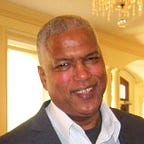The Revolving Definition of Racism in America
Who Is And Who Isn’t?
“Let them call you racist. Let them call you xenophobes. Let them call you nativists. Wear it as a badge of honor. Because every day, we get stronger, and they get weaker.” Steve Bannon
It used to be that being called a racist was a terrible thing. It elicited groaning, weeping, and gnashing of teeth. People would go to great lengths to refute the claim, testifying to their standing in the community and best friends of other races. Racists had no real problem with being racist. They didn’t like people to call them one, avoiding appearances of being a racist without regard to how they felt. But things have changed.
As former White House Chief Strategist Steve Bannon suggests, being called a racist no longer matters. The definition is so changeable that it depends on who is making a claim and who is being named. A disturbing pattern has evolved, which renders the charge almost meaningless in some circles. Various defenses against the label have arisen, backed up by certain media, elected officials, and even the Supreme Court. Let’s take a look at what is and isn’t racist in America these days:
